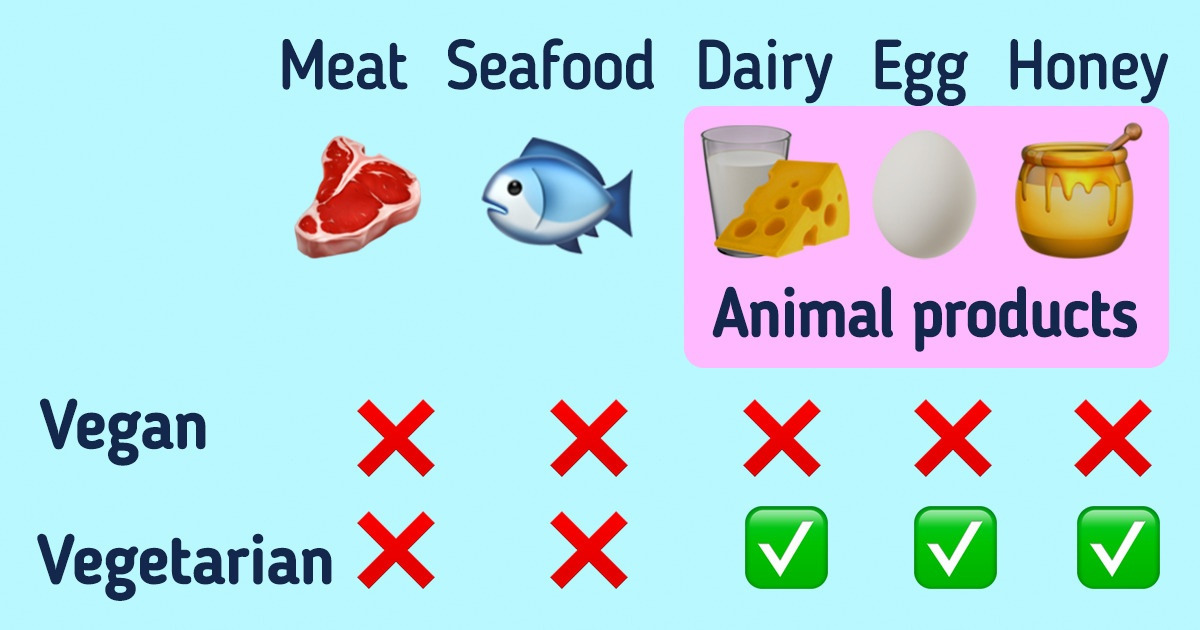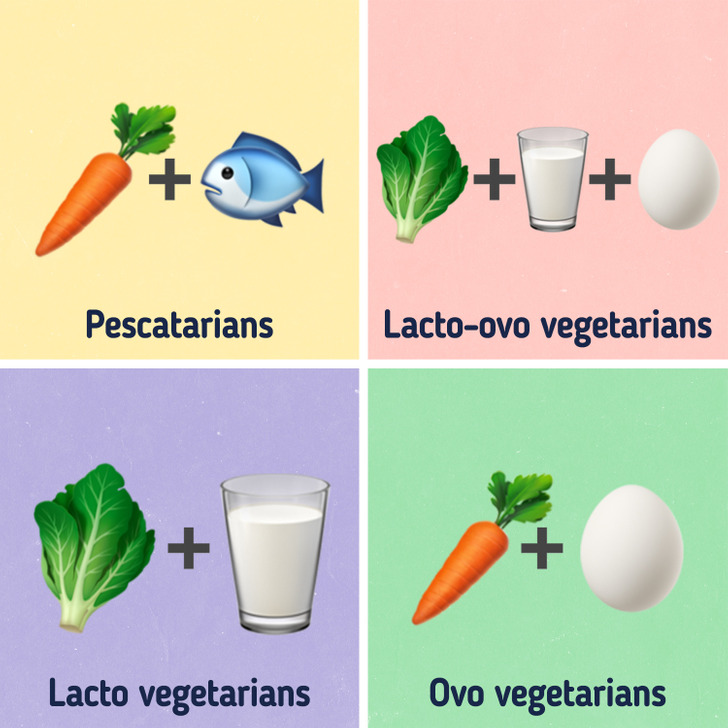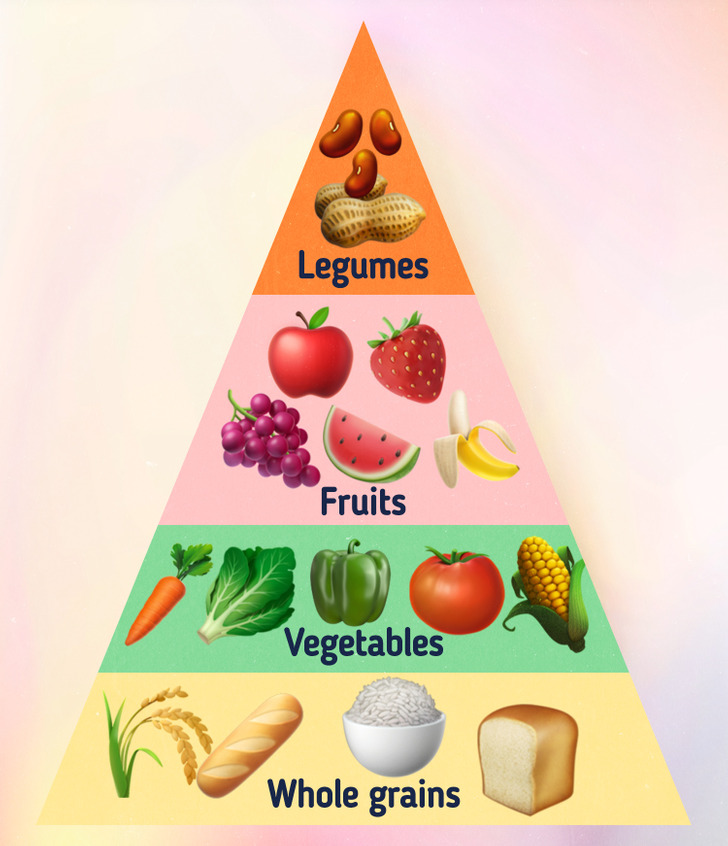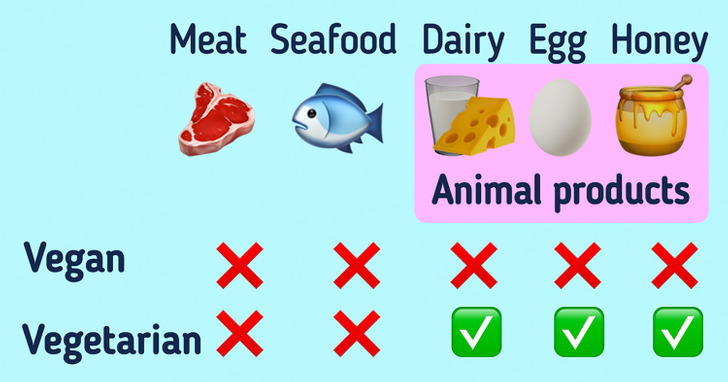What the Difference Between Being Vegan and Vegetarian Is

Both vegetarianism and veganism have been around for a while, but these diets have been growing in popularity recently. Even though they may seem similar at first, there are a few important differences between the two. 5-Minute Crafts will clear this up and tell you exactly how they differ.
1. What vegetarianism is
Vegetarianism is a type of diet where the individual avoids consuming meat, fish, poultry, or other by-products of animal cruelty. Although, some vegetarians do eat products that technically come from animals like dairy, eggs, and honey. Vegetarian diets mostly rely on fruits, vegetables, nuts, seeds, grains, as well as “meat substitutes.”
Within vegetarianism, there are several variants of the diet:
- Lacto vegetarian: People that follow this diet don’t consume any meat, fish, or eggs, but eat dairy products.
- Ovo vegetarian: People following this diet don’t eat any meat, fish, or dairy, but do consume eggs.
- Lacto-ovo vegetarian: This one is a mix of the previous two variants, and those who follow this diet avoid meat and fish but consume eggs and dairy.
- Pescatarian: This diet is not considered to be truly vegetarian, as individuals who follow it consume fish and other seafood. It’s commonly referred to as “semi-vegetarian” or “flexitarian.”
2. What veganism is
Veganism is considered a more strict form of vegetarianism, and also not just a diet, but a way of life. Any products derived from animal sources are totally excluded from a vegan lifestyle — this includes food, clothing, and others.
- Similar to vegetarianism, vegans consume fruits, vegetables, nuts, whole grains, and other plant-based ingredients in their daily diet.
- An individual following this lifestyle avoids meat, fish, dairy, eggs, honey, gelatin, leather, silk, wool, beeswax, and any other products that derive from animal sources.
- Cosmetics that include non-vegan ingredients and that are tested on animals are also avoided.
3. The main differences
The reasons why vegetarians and vegans avoid animal products are often similar, with the biggest difference being the degree to which the individuals consider animal-derived products acceptable.
- Vegetarians are against animal cruelty for purposes like food but may consider it acceptable to consume dairy or eggs, depending on how the animals were kept in the process.
- Vegans are of the opinion that animals shouldn’t be used to benefit humans, whether it’s for food, clothing, entertainment, etc. Because of that, people who follow this lifestyle avoid any and everything containing animal-derived ingredients regardless of how the animals were kept.


